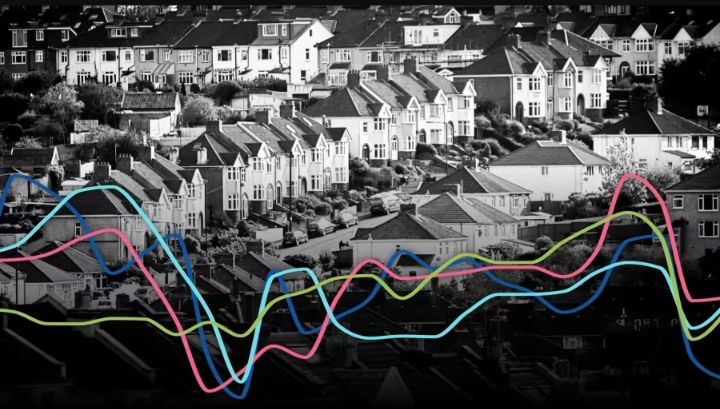We’re Entering a Brutal New Era for the Housing Market: Unveiling the Challenges and Opportunities
Introduction:
The global housing market is on the cusp of a profound transformation, signaling the advent of a brutal new era. As economic, social, and environmental factors converge, the traditional dynamics of real estate are being upended, presenting both challenges and opportunities for homeowners, investors, and policymakers alike. In this comprehensive analysis, we delve into the multifaceted dimensions that define this new era for the housing market, exploring the driving forces, potential consequences, and strategies to navigate the evolving landscape.
1. The Evolving Economic Landscape:
1.1. Inflationary Pressures and Affordability Crisis:
The world economy is witnessing a resurgence of inflationary pressures, significantly impacting the housing market. Escalating construction costs, soaring commodity prices, and tightening labor markets have contributed to a rapid rise in housing prices. This has led to an affordability crisis, with homeownership becoming increasingly out of reach for many aspiring buyers, exacerbating wealth inequality.
1.2. Shifting Demographics and Lifestyle Preferences:
Demographic shifts, such as the rise of millennials as the largest home-buying cohort and an aging population, have reshaped housing demand. Preferences for urban centers, sustainable communities, and proximity to amenities have become key considerations, challenging traditional suburban housing models and necessitating the development of innovative solutions.
2. The Influence of Technological Advancements:
2.1. PropTech and Digital Disruption:
Technological advancements have revolutionized the way we buy, sell, and manage properties. PropTech innovations, including virtual reality tours, blockchain-based transactions, and smart home systems, are reshaping the customer experience and streamlining processes. However, these disruptions also bring forth concerns regarding data privacy and security.
2.2. Remote Work and Spatial Reconfiguration:
The global shift toward remote work has redefined the importance of location and allowed individuals to consider non-traditional housing options. The demand for larger homes, home offices, and flexible living spaces has surged, leading to a reimagination of the ideal residential environment.
3. Environmental Sustainability and Resilience:
3.1. Climate Change and Adaptation:
The escalating impacts of climate change have forced the housing market to confront the need for resilience and sustainable practices. Rising sea levels, extreme weather events, and increased energy efficiency requirements have influenced construction standards, insurance costs, and long-term investment decisions.
3.2. Green Building and Renewable Energy:
Sustainable building practices, such as green certifications and energy-efficient designs, have gained prominence. Increasingly, homeowners and developers are incorporating renewable energy sources like solar power, reducing the carbon footprint of properties and potentially enhancing their value in the market.
4. Policy Interventions and Regulatory Challenges:
4.1. Government Intervention and Housing Policy:
Governments play a pivotal role in shaping the housing market through policies aimed at addressing affordability, homelessness, and urban development. However, striking a balance between market forces and regulation presents a complex challenge, requiring adaptive and evidence-based policymaking.
4.2. Regulatory Compliance and Risk Management:
Increased regulatory scrutiny in the aftermath of the 2008 financial crisis has impacted lending practices and mortgage availability. Stringent lending standards and risk management protocols aim to ensure financial stability, but they can also impede access to credit for certain segments of the population.
Conclusion:
The housing market is entering a new era marked by unparalleled challenges and transformative potential. As the forces of economics, technology, environment, and policy converge, stakeholders must adapt to navigate this dynamic landscape successfully. By embracing innovative approaches, prioritizing affordability, sustainability, and resilience, and fostering inclusive housing policies, we can shape a future where the housing market serves the needs of all, ensuring a thriving and equitable society.



